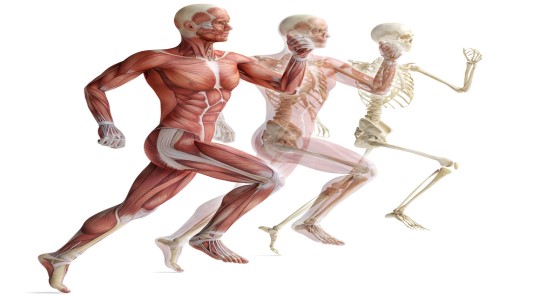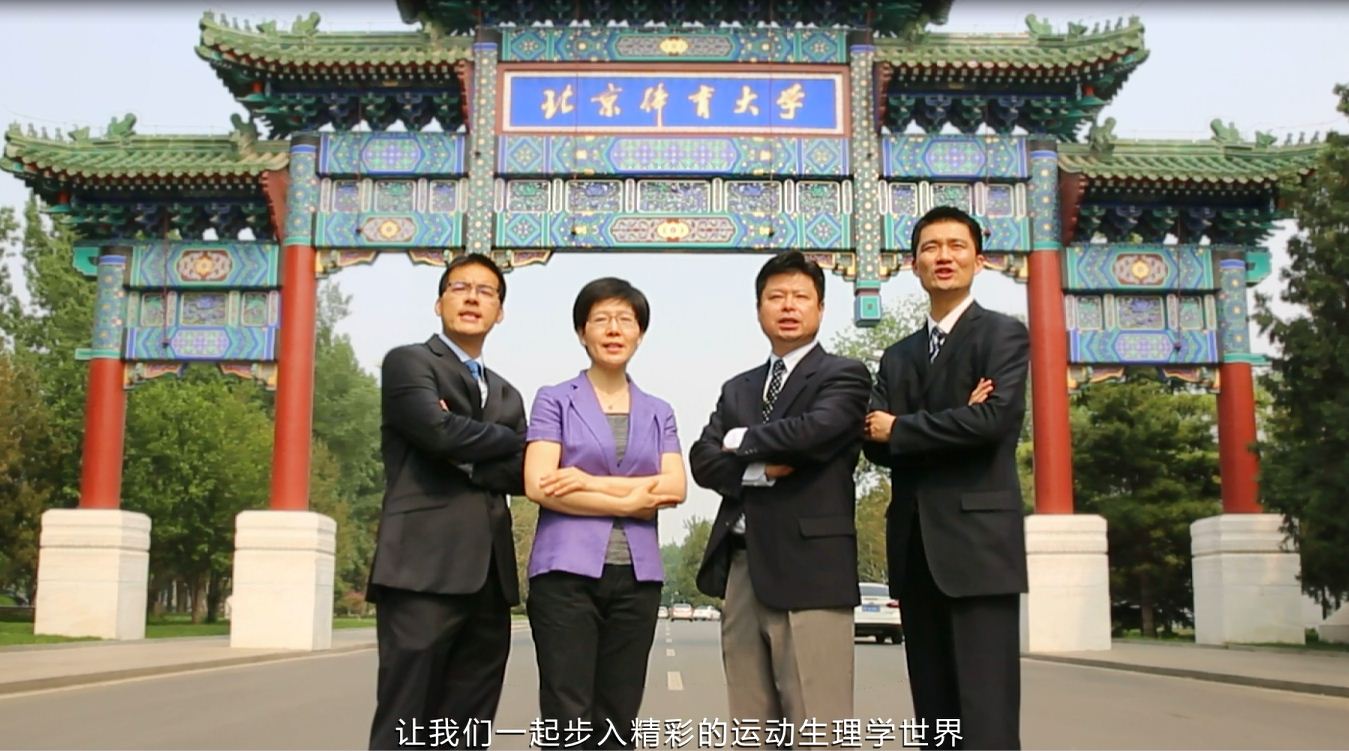
当前课程知识点:心理学之旅 > 第10章 智力 > 第35讲 因素及其超越—智力理论 > 第35讲 因素及其超越—智力理论
你见过这样的同学吗
Have you seen such a classmate?
高中时成绩很好
His high school performance is very good
老师和同学都认为他是最好的
teachers and students think he is the best
最聪明的学生
and the most intelligent student
但他的职业生涯却表现平平
but his career performance is average
班里一大半同学都比他表现好
most of the students in the class are better than him
这样的同学在国内国外都很常见
Such students are very common both at home and abroad
这种现象说明
which shows that
学业成就并不能完全决定
academic achievement does not completely determine
一个人是否成功
whether a person is successful or not
斯滕伯格用成功智力的理论
Sternberg used the theory of successful intelligence
来解释这个问题
to explain this phenomenon
超越了传统的智力理论
which went beyond the traditional theory of intelligence
现在我们先了解传统的智力理论
Now let's talk about the traditional theory of intelligence first
传统的智力理论是心理测量学理论
The traditional theory of intelligence is psychometric theory
用因素来说明智力的结构
which uses factors to explain the structure of intelligence
英国的心理学家和统计学家斯皮尔曼
Spearman, a British psychologist and statistician
提出 能力由两种因素组成
put forward that ability consisted of two factors
一种是一般因素 即G因素
one was general factor, that was, G factor
是决定一个人能力高低的主要因素
which was the main factor determining a person's ability
一般因素
General factors was the reason why
是不同智力任务成绩正相关的原因
different intelligence tasks showed positive correlation
另一种是特殊因素 即S因素
The other was the special factor, S factor
是完成某种特定任务所必需的能力
which was the ability to complete a special task
特殊因素
The special factor was the reason
是不同智力任务成绩不完全正相关的原因
of incomplete positive correlation between different intelligence tasks
各种特殊因素与一般因素
All kinds of special factors and general factors
结合在一起构成了人的智力
combined to form human intelligence
美国心理学家瑟斯顿认为
According to Thurston, an American psychologist
人类的智力由7种基本能力组成
human intelligence consisted of seven basic abilities
分别是语词理解 语词流畅 数字运算
verbal comprehension, word fluency, number operation
空间关系 联想记忆
space relation, associative memory
知觉速度 一般推理
perceptual speed, general reasoning
这7种基本能力相当于
These seven basic abilities were equivalent to
斯皮尔曼理论中的G因素
the G factor in Spearman's theory
同时
At the same time
这7种基本能力彼此独立
these seven basic abilities were independent of each other
它们的不同组合构成了
and their different combinations
每个人的独特智力结构
constitute each person's unique intellectual structure
1966年 卡特尔又把塞斯顿的
In 1966, Cattell divided seven factors of Thurston
7个因素分成两组
into two groups
简化成液体智力gf和晶体智力gc
namely, fluid intelligence and crystallized intelligence
液体智力是发现复杂关系
Fluid intelligence is the ability to find complex relationships
和解决问题的能力
and solve problems
比如知觉 记忆 运算速度 推理能力等
such as perception, memory, calculation speed, reasoning ability, etc
它依赖于先天的秉赋
which depends on innate talent
一般在20岁以后达到顶峰
generally reaching the peak after the age of 20
30岁以后随着年龄的增长而降低
and decreasing after the age of 30
而晶体智力
while crystallized intelligence
是以经验为基础的后天习得的能力
is the acquired ability based on experience
主要指学会的技能 语言文字能力
mainly referring to the skills learned, language
判断力 联想力等
and character ability, judgment, association ability, etc
可以随着
that can be improved gradually
知识经验的积累而逐步提高
with the accumulation of knowledge and experience
美国心理学家斯滕伯格认为
Sternberg, an American psychologist, thought
智力理论必须说明智力的三个方面
that intelligence theory must explain three aspects of intelligence
也就是智力的内在成分
that was the internal components of intelligence
这些成分与经验的关系
the relationship between these components and experience
以及这些成分与环境的关系
and the relationship between these components and environment
并提出三元智力理论
In addition, he put forward the triarchic theory of intelligence
分别用智力成分亚理论
which is explained by the component subtheory of intelligence
智力经验亚理论
the experienced subtheory of intelligence
和智力情境亚理论来进行说明
and the contextual subtheory of intelligence
斯滕伯格认为
Sternberg thought that
传统的智力测验测量的仅仅是以数学
the traditional intelligence test only measured
逻辑能力为基础的智力
the intelligence based on mathematics and logic ability
高智力的人只是学习好
while the high intelligence people just studied well
却不一定能在生活中取得成功
but not necessarily succeeded in life
所以
Therefore
他把传统智力测验所测量的智力
he called the intelligence measured by the traditional intelligence test
叫做惰性化智力
as inert intelligence
并提出成功智力这个概念
and put forward the concept of successful intelligence
成功智力就是一种
Successful intelligence is a kind of intelligence
用以达到人生中主要目标
which is used to achieve the main goals in life
在现实生活中真正能产生举足轻重影响的智力
and can really has a decisive impact in real life
成功智力包括分析性智力
Successful intelligence includes three factors: analytical intelligence
创造性智力和实践性智力这三个因素
creative intelligence and practical intelligence
分别用三个亚理论说明
which are explained by three subtheories
分析性智力
Analytical intelligence
是用智力成分亚理论说明的
is explained by the component subtheory of intelligence
指的是应用于生活中熟悉任务
which refers to the basic information processing skills
的基础信息加工技能
applied to familiar tasks in life
有三个成分 分别是 元成分
There are three components: metacomponents
操作成分和知识获得成分
performance components and knowledge-acquisition components
比如这个字谜
For example, this riddle
请你把T R H O S这五个字母组成一个英语单词
please make an English word out of the five letters T R H O S
你完成了吗 答案是SHORT
Have you finished? The answer is SHORT
中间发生了什么认知过程呢
What kind of cognitive process happened?
我们可以使用一个策略
One strategy we can use
就是利用英语中SH这个常见的组合
is to use the common combination of SH in English
或者TH的组合
or the combination of TH
选择这种策略
To choose this strategy
需要用到分析性智力的元成分
we need to use the metacomponent of analytical intelligence
执行这种策略 需要用到操作成分
to execute this strategy, we need to use the operational component
当完成了这个任务
when we finish this task
就得到short这个词
we get the word SHORT
这是知识获得成分
which is the knowledge-acquisition components
第二个因素是创造性智力
The second factor is creative intelligence
是用智力经验亚理论说明的
which is explained by the experienced subtheory of intelligence
指人们处理新异问题的能力
and refers to people's ability to deal with new problems
如果个体在新环境遇到新任务
If an individual meets a new task in a new environment
他能较快找到解决这个问题的方法
he can quickly find a solution to the problem
并且能比较快地实现
and can realize the automatic processing
对这个任务的自动化加工
of the task relatively quickly
就说明这个人比较聪明
the individual is relatively intelligent
第三个因素是实践性智力
The third factor is practical intelligence
是用智力情境亚理论说明的
which is explained by the the contextual subtheory of intelligence
表现为适应新环境
It is expressed as the ability to adapt to the new environment
选择适当的环境
select the appropriate environment
以及有效地改变环境
and effectively change the environment
以适应个人需要的能力
to meet the needs of individuals
如果适当运用这三个方面的能力
If we use these three abilities properly
就能在现实生活中取得成功
we can succeed in real life
美国哈佛大学的心理学家加德纳
Gardner, a psychologist with Harvard University in the United States
根据脑损伤病人的学习能力差异
took the differences of learning ability of patients with brain injury as proof
在1983年出版的《心智的架构》这本书中
in the book Frames of Mind published in 1983
提出了多元智力理论
put forward the multiple intelligence theory
他认为
In his opinion
智力应该是在某一特定文化情境或社群中
intelligence should be the ability to solve problems or produce
所展现出来的解决问题或制作生产的能力
in a specific cultural situation or community
这些能力可以分成7种类型
These abilities can be divided into seven types
分别是 第一 逻辑数学智力
Namely, first, logical-mathematical intelligence
表现为对数学或逻辑的敏感
is manifested as the sensitivity
和推理能力
and reasoning ability to mathematics or logic
比如像杨振宁这样的科学家
For example, scientists like Chen-Ning Yang
逻辑数学智力水平就非常高
have a very high level of logical and mathematical intelligence
第二 言语智力
Second, linguistic intelligence
表现为对语音 节律和意义的敏感性
is manifested as sensitive to speech, rhythm and meaning
对不同语言功能的敏感性
and to different language functions
像李白这样的大诗人
As a great poet like Li Bai
言语智力就获得了高度发展
speech intelligence has been highly developed
第三 音乐智力
Third, musical intelligence
表现为产生和欣赏节奏音高和旋律的能力
is the ability to produce and appreciate rhythm, pitch and melody
像贝多芬这样的作曲家 音乐家
Composers and musicians like Ludwig van Beethoven
乐智力水平就非常高
have a very high level of musical intelligence
第四 空间智力
Fourth, spatial intelligence
表现为能准确感受视觉和空间世界的能力
is the ability to accurately feel the visual and spatial world
对人的最初知觉进行转换的能力
and to transform the initial perception of human beings
像罗丹这样的雕塑家的
Sculptors like Rodin
空间智力水平很高
have a high level of spatial intelligence
第五 身体运动智力
Fifth, bodily kinesthetic intelligence
表现为控制身体运动
is manifested as the ability to control body movement
和灵活掌控物体的能力
and flexibly control objects
比如像著名舞蹈家杨丽萍
For example, Yang Liping, a famous dancer
就有高度发展的身体运动智力
has a highly developed body kinesthetic intelligence
第六 人际智力
Sixth, interpersonal intelligence
表现为能辨别他人的情绪
is the ability to distinguish other people's emotions
气质 动机和需求
temperament, motivation and needs
并作出恰当反应的能力
and to make appropriate responses
像我们所崇拜的周恩来总理
Like the respected Premier Zhou Enlai
著名心理学家罗杰斯
and famous psychologist Rogers
都具有高度发展的人际智力
all have highly developed interpersonal intelligence
第七 内省智力
Seventh, introspective intelligence
表现为对自己的情绪 优势
is manifested in deep understanding of one's emotions, strengths
弱点 需求和智力等有深入了解
weaknesses, needs and intelligence
并以此指导知道自己行为
and thus guiding one's behavior
比如
For example
孔子有一个非常有名的学生叫曾参
Confucius had a very famous student named Zeng Shen
他每天都从三个方面反思自己的行为
who reflected on his behavior from three aspects every day
“吾日三省吾身
“Each day I examine myself on three counts
为人谋而不忠乎
whether or not I am loyal to those in whose behalf I act
与朋友交而不信乎”
whether or not I am trustworthy in my dealings with friends
传不习乎
whether or not I practise what is imparted.”
有人对加德纳的理论提出了质疑
Some people question Gardner's theory
因为以上七种智力
because none of the above seven kinds of intelligence
都不能说明达尔文这种人的智力
can explain Darwin's intelligence
因此加德纳在1995年补充了第八种智力
so Gardner added the eighth kind of intelligence in 1995
就是自然智力
namely natural intelligence
表现为对不同种属间
which is shown as the sensitivity to the relationship
关系的敏感性
between different species
以及与生物进行互动的能力
and the ability to interact with creatures
生物学家 环保主义者
Biologists and environmentalists
具有高度发展的自然智力
have highly developed natural intelligence
好 今天的内容就讲完了
OK, that's all for today
现在回顾一下主要内容
Now let’s review the main content
斯皮尔曼认为
Spearman thought that
智力包括一般因素和特殊因素
intelligence consisted of general factors and special factors
瑟斯顿认为
Thurston thought that
人类的智力由7种基本能力组成
human intelligence consisted of seven basic abilities
卡特尔把这7个因素又分为
Cattell divided these seven factors into
液体智力和晶体智力
liquid intelligence and crystal intelligence
斯滕伯格认为
Sternberg thought that
成功智力包括 分析性智力
successful intelligence includes three factors : analytical intelligence
创造性智力和实践性智力这3个因素
creative intelligence and practical intelligence
加德纳认为智力分成8种不同的类型
Gardner thought that intelligence had eight different types
下次课我们将谈到
Next time we will talk about
不同族群的智力存在什么差异
the differences in intelligence of different ethnic groups
好 下次再见
OK, see you next time
-第2讲 理性之光—心理学是一门科学
-第3讲 寻找事实—心理学的研究方法
-第1章 作业
-第4讲 捷足先登—冯特创立心理学
-第5讲 心灵深处—弗洛伊德的精神分析理论
-第6讲 横空出世—华生与行为主义
-第7讲 融合与发展—心理学的新趋势
-第2章 作业
-第8讲 认知的第一步—感觉及其规律
-第9讲 获取信息—感觉的功能
-第10讲 超越元素—知觉的特性
-第11讲 感知三维世界—深度知觉
-第3章 作业
-第12讲 解决信息混乱—意识的功能
-第13讲 并不平静—睡眠
-第14讲 异常状态—梦、催眠与冥想
-第4章 作业
-第15讲 行为的变化—什么是学习?
-第16讲 建立联结—经典条件作用
-第17讲 行为的塑造—操作条件作用
-第18讲 不必参与的学习—观察学习
-第5章 作业
-第19讲 经验的积累—什么是记忆?
-第20讲 永不消逝的信息—长时记忆
-第21讲 非故意的谎言—记忆重构
-第22讲 转瞬即逝—短时记忆和感觉记忆
-第6章 作业
-第23讲 人类的荣耀—语言
-第24讲 策略与定式—问题解决
-第25讲 并非总是理性—推理与判断
-第7章 作业
-第26讲 行为的动力—动机及其来源
-第27讲 吃还是不吃?—饮食的生理与心理
-第28讲 追求成功的动力—成就动机
-第8章 作业
-第29讲 生命的色彩—情绪及其功能
-第30讲 生命色彩的解读—情绪理论
-第31讲 情绪双刃剑—压力
-第32讲 改变自己—压力应对
-第33讲 创造灿烂人生—幸福有方法
-第9章 作业
-第34讲 你有多聪明?—智力及其测量
-第35讲 因素及其超越—智力理论
-第36讲 遗传、教育、文化—智力的族群差异
-第10章 作业
-第37讲 千人千面—人格的概念和特征
-第38讲 描述差异—类型说与特质说
-第39讲 了解人格—人格测验.
-第40讲 膨胀的自我—自尊运动
-第11章 作业
-期末考试



